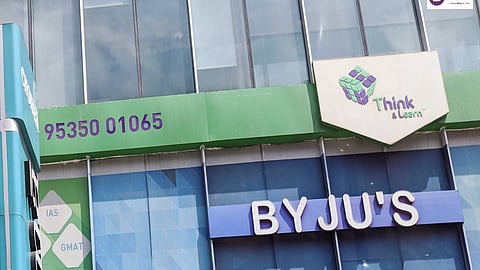
- News
- Columns
- Interviews
- Law Firms
- Apprentice Lawyer
- Legal Jobs
- हिंदी
- ಕನ್ನಡ

The Supreme Court on Wednesday allowed the appeal filed by US-based financial creditor Glas Trust challenging the National Company Law Appellate Tribunal (NCLAT) decision to halt insolvency proceedings initiated against Think & Learn, the parent company of Byju's [Glas Trust Company LLC v. Byju Raveendran and ors].